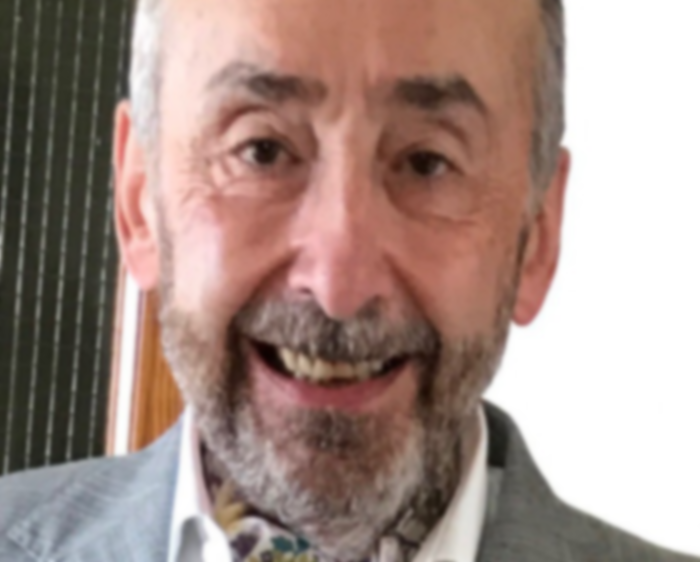Stuart Caplan shares his experience of being diagnosed with tongue cancer and gives an inspiring account of his recovery using a holistic approach.
I had tongue cancer (squamous cell carcinoma of the tongue) which also affected my lymph nodes. I have undergone radiotherapy, chemotherapy and surgery involving an extended partial glossotomy and neck dissection. As a result of the treatment I suffer from acute fatigue and cachexia, a post-cancer treatment condition which causes weight loss, fatigue and many other effects as a result of cancer treatment.
As a result of the treatment I suffer from fatigue and lack of energy, I’ve lost most of my sense of taste, and eating, drinking and swallowing are still a challenge. I also had to teach myself how to speak again.
In addition to the long term side-effects of cancer, I also suffer from heart disease and have recently undergone triple bypass surgery in order to deal with it. Furthermore I have had a series of deep vein thromboses and a pulmonary embolism. I also have stenosis and oedema in both legs. These conditions exasperate the severe fatigue, breathlessness, lack of energy, pain in both legs and difficulty walking and standing I suffer from as a result of the cancer and its treatment.
The cancer started with a persistent sore throat, headaches and earache. Four doctors, my GP, two Professors of medicine and an ENT surgeon all diagnosed gastric reflux. The pain was excruciating. It took two years to get a diagnosis of cancer! Having cancer of the tongue was such a strange and scary thought. I’d never heard of tongue cancer before. I never imagined that something like this could happen.
I was finally diagnosed in May 2012. Neither chemotherapy nor radiotherapy killed the cancer off but they did stop it from spreading, so in February 2013 I had an extended partial glossotomy and neck resectioning which removed 2/3 of my tongue and the lymph nodes in my neck.
As you can imagine, eating, drinking, swallowing and talking are all challenging and I have lost almost all my sense of taste. Just before the surgery Susan, who I had been with for 17 years, agreed to finally marry me, and it will be our fifth anniversary next month. Had we married when we first met we would now be planning the celebrations for our silver wedding anniversary.
So right now I’m very busy not only with my St. James’s Place business but I’m also a Patient Ambassador for the Mouth Cancer Foundation, London Cancer, London Cancer Alliance, the Get to Know Cancer campaign, Macmillan Cancer, Imperial College Healthcare Trust and a number of other cancer charities and organisations. I’m also helping the National Health Service formulate the delivery of cancer treatments in London.
Finally I’m writing a book about my experience of having had cancer. I still suffer with cachexia which causes weight loss, fatigue and many other effects as a result of cancer treatment.
However, overall I’m happy and grateful for everything I have. Others pray for what I have!
Today more and more people are surviving cancer. It’s becoming a manageable long term chronic condition.
The majority of patients now die with cancer, not of cancer. The issue of survivorship and how to manage it must be addressed in a user friendly way with information given clearly and sympathetically.
There are many facets involved ranging from the financial impact of cancer and day to day issues such as dealing with fatigue and nutrition. For example, mouth cancer patients need to deal with many physical issues such as the tooth and mouth cleaning regime, eating and drinking and dealing with either the surfeit or shortage of saliva.
During treatment one is cocooned in cotton wool. Suddenly at the end of treatment this stops so the patient is left hanging there.
More information needs to be given on support groups and complementary therapies.
Ensuring full rehabilitation is now a priority. This will, in many instances, require a raft of support ranging from career counselling, financial planning, occupational therapy plus a number of complementary therapies including such treatments as acupuncture to help recovery from radiotherapy, yoga, meditation, manual lymphatic drainage massage, Reiki healing, exercise and diet. It may also require a complete rethink of one’s social life.
Too many people are fearful of cancer so do not know how to relate to cancer patients and survivors.
I had a cull of my contacts which I would recommend to all cancer patients. I soon learnt that you shouldn’t walk away from negative people. You should RUN! Survivors are just that. By and large we aren’t invalids and don’t want to be treated as such.
I’d like to say that strange as it may seem I actually rather enjoyed the cancer process although it’s a slow motion car crash. I loved the technology (I’m a bit of a geek), I made many good friends and met many super people. My surgeons, doctors and nurses were great, and if it wouldn’t impact on the patient/medic relationship I would like to meet them in a social setting. However I realise that if things went wrong for me then our social relationship could impact on that. I’ve come out of the process stronger than I went in. I’ve lost weight — a third of my pre-treatment weight, grew darker hair which has grown where I was previously bald and made lots of great friends from the patients I went through it with.
